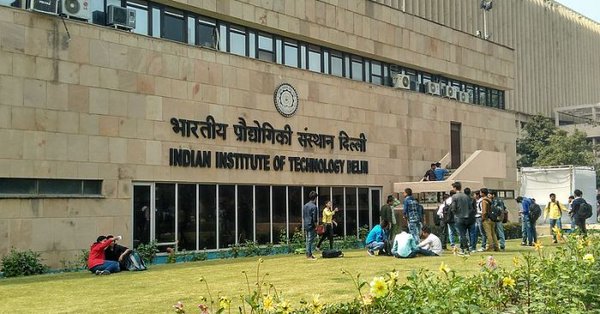CSIR Technologies for Rural Development Launched under Unnat Bharat Abhiyan
New Delhi: In a joint initiative of Council of Scientific & Industrial Research (CSIR), Unnat Bharat Abhiyan (UBA), Indian Institute of Technology Delhi (IITD) and Vijnana Bharti (VIBHA), a set of CSIR technologies has been launched for rural development. The event was organized virtually on Tuesday on the occasion of CSIR-NISTADS 40th Foundation Day.
The programme was inaugurated by Dr. Harsh Vardhan (Hon’ble Minister of Science and Technology, Government of India) and witnessed motivated speeches from Dr. Shekhar C Mande (DG-CSIR, Secretary, DSIR, GOI), Padma Bhushan Sh. Vijay P. Bhatkar (Chairman-National Steering Committee, UBA), Prof V. Ramgopal Rao (Director, IIT Delhi), Prof. Virendra K. Vijay (National Coordinator, UBA) and Dr. Ranjana Aggarwal (Director, CSIR-NISTADS).
Various stakeholders including famous dignitaries, science experts, field experts, all Regional Coordinating Institutes and Participating Institutes of UBA, non-profit organisations, UBA volunteers, villagers and farmers of the adopted villages also participated in the programme organized with a purpose to enable the outreach of CSIR rural technologies to society.
A tripartite MoU to this effect was signed by the three parties on 28th July 2020 at CSIR to work jointly for post COVID fast track action plan to create livelihood opportunities in rural areas, particularly for the people who have returned to their native villages in the lockdown period.
Over the years CSIR has developed several appropriate technologies, which could be deployed in rural areas for development and livelihood generation and achieving sustainable development goals. These technologies will now be disseminated to society through the Higher Education Institutional network of UBA and local chapters of VIBHA. CSIR- National Institute of Science, Technology and Development Studies (CSIR-NISTADS) is acting as a nodal CSIR Lab to establish linkages between CSIR laboratories, UBA, VIBHA, and stakeholders.
CSIR, UBA, VIBHA have planned to work jointly on a framework for scientific intervention to create sustainable livelihood opportunities in the rural clusters under synergy of S&T Organizations (CSIR/DST/DBT/DRDO etc). It began with strengthening the network, where R&D organizations and institutions to take the role of nodal agencies who provide solutions to the felt need of the communities in the country. UBA nodal centers- RCIs are the solution facilitators and are the link that build capacities and connect to the solution seekers (community, farmer etc.) and solution disseminators such as Development agencies, Institutes, NGOs, and Panchayati Raj Institutions etc.
In his inaugural speech, the hon’ble minister talked about the crucial and catalytic role of Science & Technology interventions in bringing equity and equality in the process of development. He said that professional know-how evolving innovative R&D is equally important as mobilizing financial resources in today’s rapidly growing ‘knowledge economy’. For that Corporates, Research agencies, Organizations working with medium, small, and cottage level entrepreneurs, voluntary social organizations, NGOs, and socially cognizant citizens need to partner on a common platform to address various problems affecting the lives of millions, especially when COVID 19 has hit hardly the economically weaker section. “There is a need to educate, train and empower the community give them opportunity, choice to become Aatmnirbharta in true sense”, he added.
“Unnat Bharat Abhiyan” is a flagship programme of Ministry of Education, conceptualised and launched in IIT Delhi, with a vision of transformational change in rural development processes by leveraging knowledge institutions to help build the architecture of an Inclusive India. A lot of work has been done for the development of the nation’s rural areas by the higher educational institutions, faculty members and students collectively in last 6 years. Unnat Bharat Abhiyan now constitutes 45 Regional Coordinating Institutions (RCIs) and 2,614 Participating Institutions (PIs). Till date, a total of 13,760 villages have been adopted under Unnat Bharat Abhiyan.
The Council of Scientific & Industrial Research (CSIR) having a pan-India presence, has a dynamic network of 38 national laboratories, 39 outreach centres, 3 Innovation Complexes and 5 units. CSIR covers a wide spectrum of science and technology and provides significant technological intervention in many areas with regard to societal efforts which include environment, health, drinking water, food, housing, energy, farm and non-farm sectors.
Vijnana Bharati (VIBHA), as a science movement with swadeshi spirit, has a greater role to play in addressing the scientific and technological concerns of Bharat and serve the masses of India at every given opportunity.

